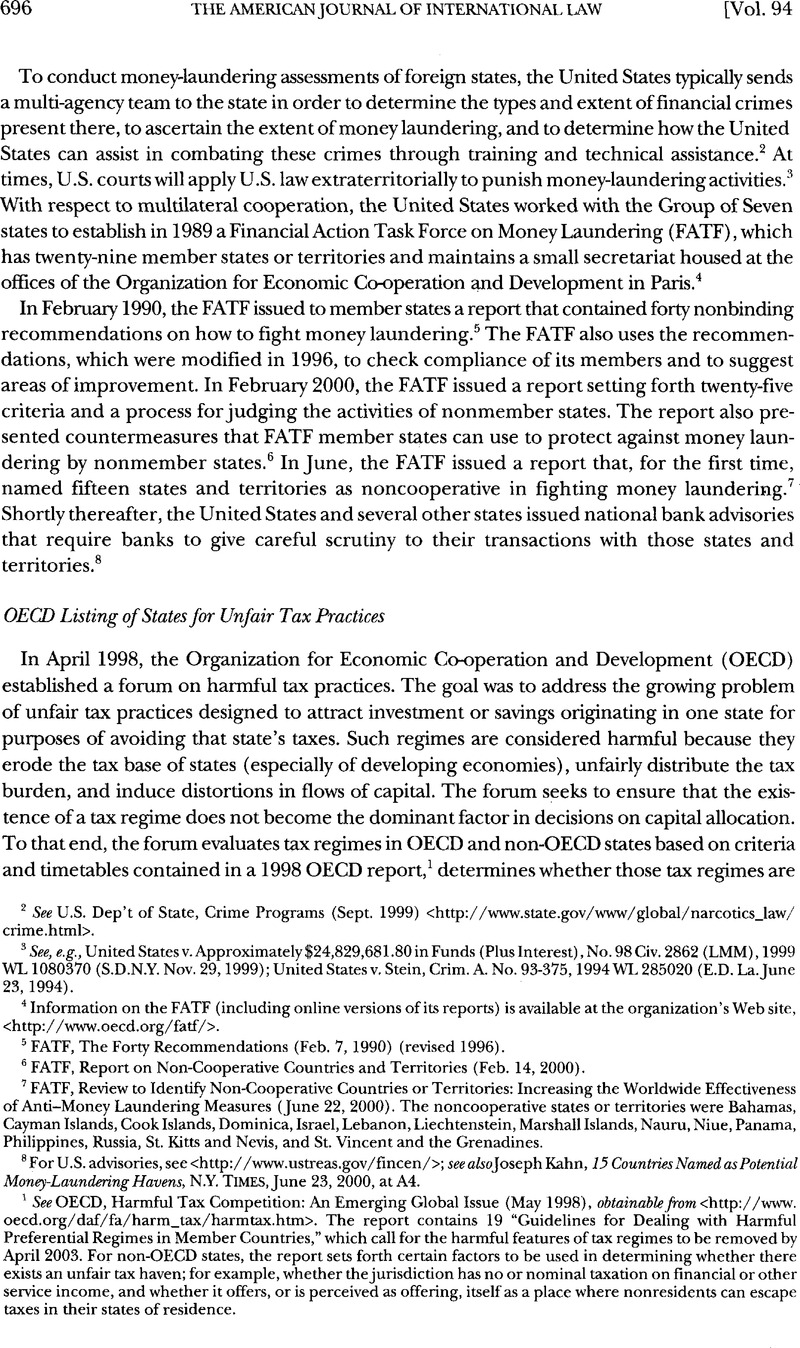No CrossRef data available.
Published online by Cambridge University Press: 10 March 2017

1 See OECD, Harmful Tax Competition: An Emerging Global Issue (May 1998), obtainable from <http://www.oecd.org/daf/fa/harm_tax/harmtax.htm>. The report contains 19 “Guidelines for Dealing with Harmful Preferential Regimes in Member Countries,” which call for the harmful features of tax regimes to be removed by April 2003. For non-OECD states, the report sets forth certain factors to be used in determining whether there exists an unfair tax haven; for example, whether the jurisdiction has no or nominal taxation on financial or other service income, and whether it offers, or is perceived as offering, itself as a place where nonresidents can escape taxes in their states of residence.
2 See OECD, Towards Global Tax Co-operation: Report to the 2000 Ministerial Council Meeting and Recommendations by the Committee on Fiscal Affairs: Progress in Identifying and Eliminating Harmful Tax Practices 17 (June 26, 2000) [hereinafter Towards Global Tax Co-operation].
3 See Kessler, Glenn, Crackdown on Tax Havens Gets Boost, Wash. Post, June 20, 2000, at A16 Google Scholar.
4 See Towards Global Tax Co-operation, supra note 2, at 12–14.
5 See id. at 25–26.